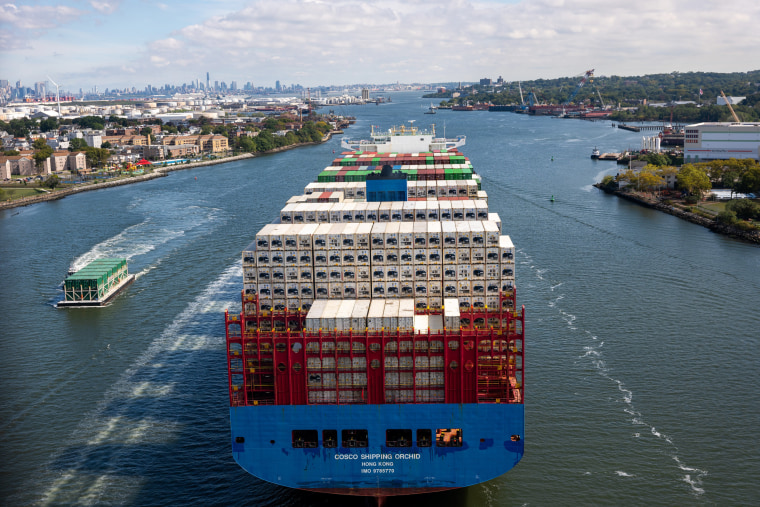Tens of thousands of longshoremen went on strike at midnight ET, shutting down major ports along the East and Gulf coasts and choking off deliveries of everything from produce to auto parts.
Consumers aren’t likely to feel the pinch unless a walkout lasts for multiple weeks, because businesses and logistics firms took pre-emptive steps to blunt the impact with the holiday shopping season about to kick off. But a work stoppage could still cost the U.S. economy anywhere from several hundred million dollars to $4.5 billion a day, analysts and business groups say. Costs from redirecting goods along longer routes would be passed on to consumers.
The ports handle about half the ocean imports in the U.S. Varying estimates say the strike encompasses 25,000 to 50,000 members of the International Longshoremen’s Association. All told, the ILA has 85,000 members. Union leaders argue that big global cargo carriers have raked in huge profits since pandemic-era supply-chain snags drove up freight rates, saying workers haven’t sufficiently shared in those gains.
In a video posted to an ILA Instagram account, Harold J. Daggett addressed union workers at Maher Terminals in Elizabeth, New Jersey.
"This is going down in history what we're doing here," he said.
"They can't survive too long," he added.
The strike caps months of heated rhetoric between the union and the United States Maritime Alliance, or USMX, which represents major ocean freight and port operators. The union is seeking raises, as well as limits on automation at ports that it says could cost jobs. The two sides hadn’t negotiated in the days leading up to the potential stoppage.
“The Ocean Carriers represented by USMX want to enjoy rich billion-dollar profits that they are making in 2024, while they offer ILA Longshore Workers an unacceptable wage package that we reject,” the union said in a statement Monday.
The USMX, meanwhile, said that it had been exchanging offers with the union and had hoped to avoid a work stoppage.

“Our offer would increase wages by nearly 50 percent, triple employer contributions to employee retirement plans, strengthen our health care options, and retain the current language around automation and semi-automation,” it said in a news release.
Several industries are prepared for the strike, having ordered goods in advance when it became apparent that a stoppage could start Tuesday, but analysts expect more serious impacts if the walkout lasts several weeks or longer. Trucking and other logistics companies raced in recent days to get as many goods as possible out of ports before a potential strike.
The vast port operations of New York and New Jersey stand to be most affected, with about 4,500 workers. New York Gov. Kathy Hochul said in a news release that she urged the two sides to come to an agreement but that preparations had been made to keep shelves stocked.
"In preparation for this moment, New York has been working around the clock to ensure that our grocery stores and medical facilities have the essential products they need," she said. "It’s critical for USMX and the ILA to reach a fair agreement soon that respects workers and ensures a flow of commerce through our ports. In the meantime, we will continue our efforts to minimize disruption for New Yorkers."
Business groups, including the U.S. Chamber of Commerce, have urged President Joe Biden to intervene using the 1947 Taft-Hartley Act. Under that authority, Biden could seek a so-called 80-day cooling-off period that would force dockworkers to stay on the job.
But while the White House has been in touch with the ILA and the USMX in recent days, Biden has said he isn’t looking to invoke the law. An intervention could also unsettle relations with organized labor 35 days before Election Day, as Democratic Vice President Kamala Harris looks to maximize her union support against Republican former President Donald Trump.
“Because it’s collective bargaining, I don’t believe in Taft-Hartley,” Biden told reporters Sunday.
On Tuesday, Biden called for negotiations to continue and urged USMX to increase worker wages in line with executive compensation.
"It is time for USMX to negotiate a fair contract with the longshoremen that reflects the substantial contribution they’ve been making to our economic comeback," Biden said in a statement.


